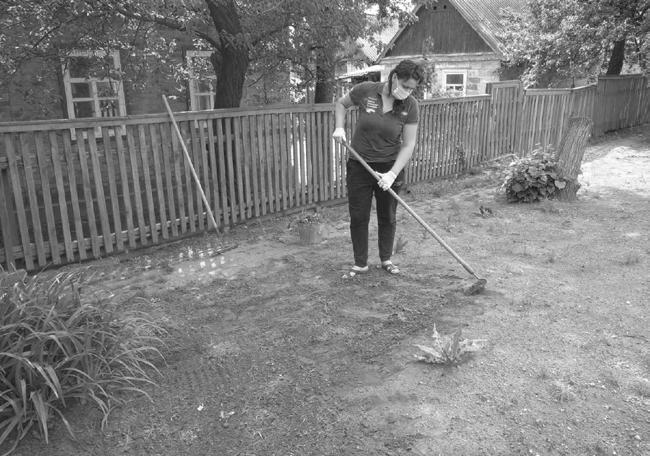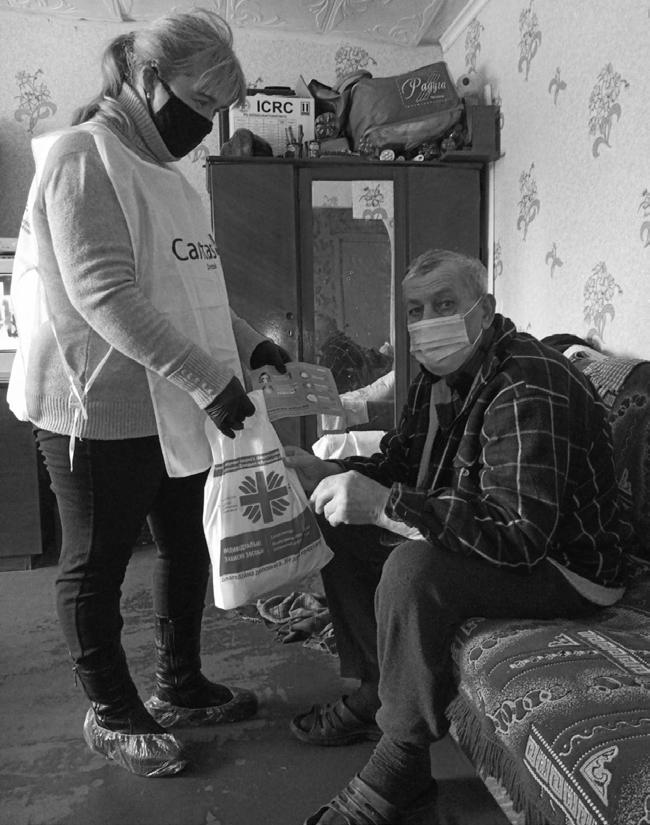
3 minute read
Social services: Labor migration, risks of human trafficking and a need for worker advice offices
from Strengthening Health, Community Resilience and Livelihoods in Donetsk and Luhansk. Gender analysis.
by mb.designer
Many small business initiatives in communities were reported to be unstable and “temporary”, and much of their activity is in the shadow economy . According to experts’ estimates, between a third and two-thirds of all economic activity in Ukraine falls on the shadow economy . Among the negative consequences are precarious jobs that lack social protection, and avoidance of taxation that leads to underfunding of local budgets and thus a deterioration in quality and availability of social services . At the same time, however, thanks to its flexibility, it seems easier to create jobs and earn money informally, which may indirectly benefit the local community by intensifying economic activity more broadly .
Some respondents in our study tended to criticize private business being mostly concerned by profits and thus exploiting workers (“you understand, everything is private and people are just like bolts in a mechanism… It’s like working to full capacity and not receiving anything for it”) . At the same time, for many residents the informal sector offers the only possibility of income-generating activity . A possible contribution of the non-governmental organizations could be in monitoring and encouraging better protection of workers’ rights and greater economic stability in the informal sector, by offering training and legal support both to small-scale entrepreneurs and their (often informal) workers . Creation of worker centres / legal advice offices could be of benefit in these communities .
Advertisement
Another area where advice offices could be of benefit for employment opportunities and economic security of households, is in the field of labour migration . In all three sites, respondents pointed to a growing number of workers (mostly men or couples) who are looking for work in other regions of Ukraine, or abroad (mostly Poland) .
One male respondent from Zolote, who currently works on the mine, mentioned that he and his friends are already thinking about going abroad “because sooner or later the mine will close down, and we need to ask ourselves — what will we do then?” . He secured a drivers’ licence for all types of vehicles and is planning to search for work as a long-haul truck driver in Poland . When asked how will he search for work, this respondent pointed to an announcement board with numerous job offers and phone numbers of labor-brokers offering work in Poland .
— Do you know who these employers are, and do you think it is safe to just call a number from an announcement? — Well, sometimes we hear from friends, there are more and more of us going that side. So we have “in-person” references. But yes, there can be a risk of human trafficking, and it is not very safe — just the other day a machination scheme by one of the employment centres was revealed. They even had an office here in Zolote, but they sold people into slavery, so they were closed down. But I don’t know the details. (male miner, site 2).
This interview excerpt points to the need of free legal advice in the community, including advice on international labour migration, creation a list of trustworthy labour-brokers, and holding information campaigns to inform potential migrants of the risks and warning signs of human trafficking . Such legal advice offices could also be important community meeting points for men, who are less likely than women to use other social infrastructure . Indeed, prior research in frontline communities confirms that the only sphere where men were more active users compared to women was in the administrative/legal sector . For instance, whereas women tend to approach humanitarian organizations, men seem to be








